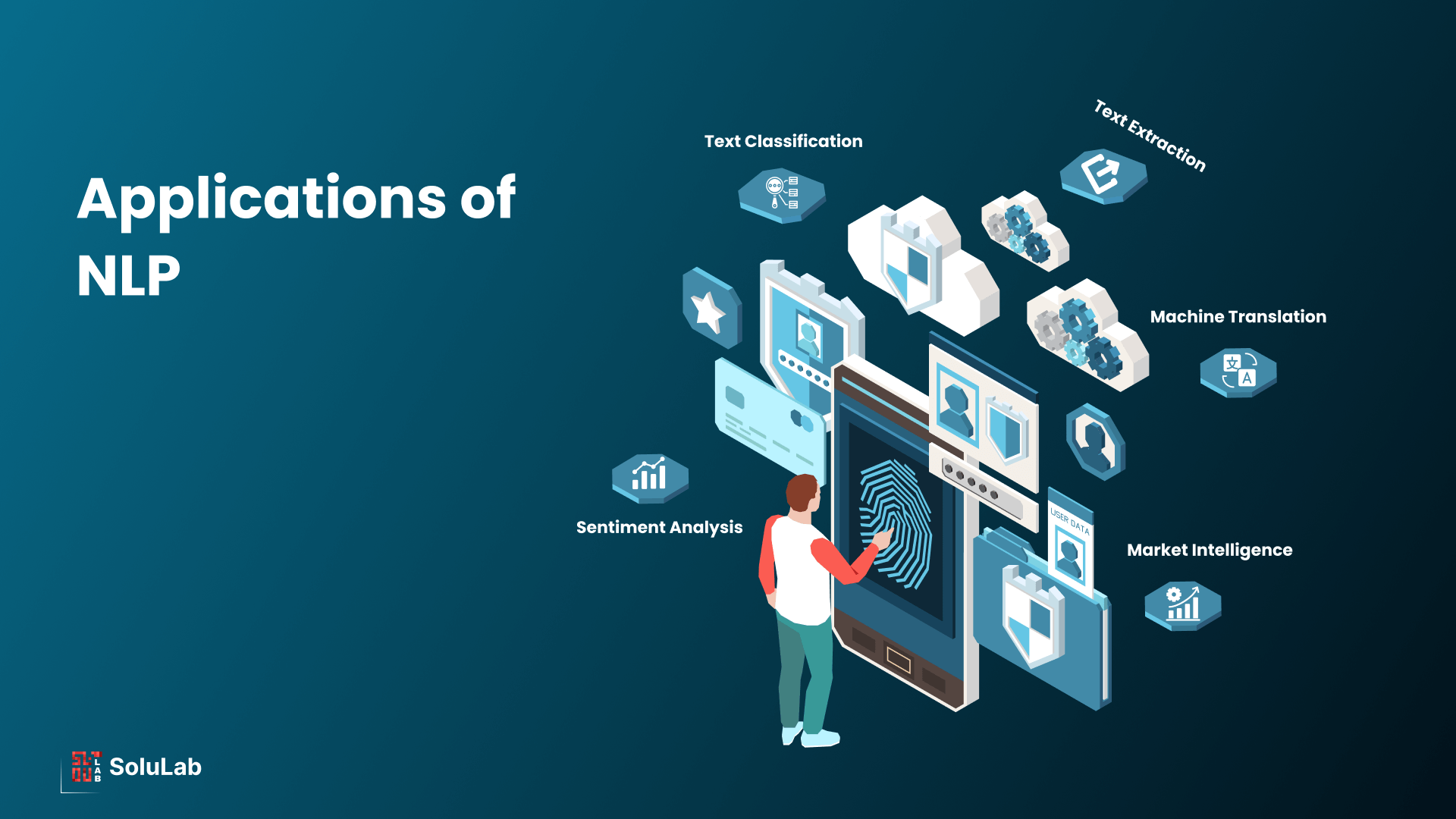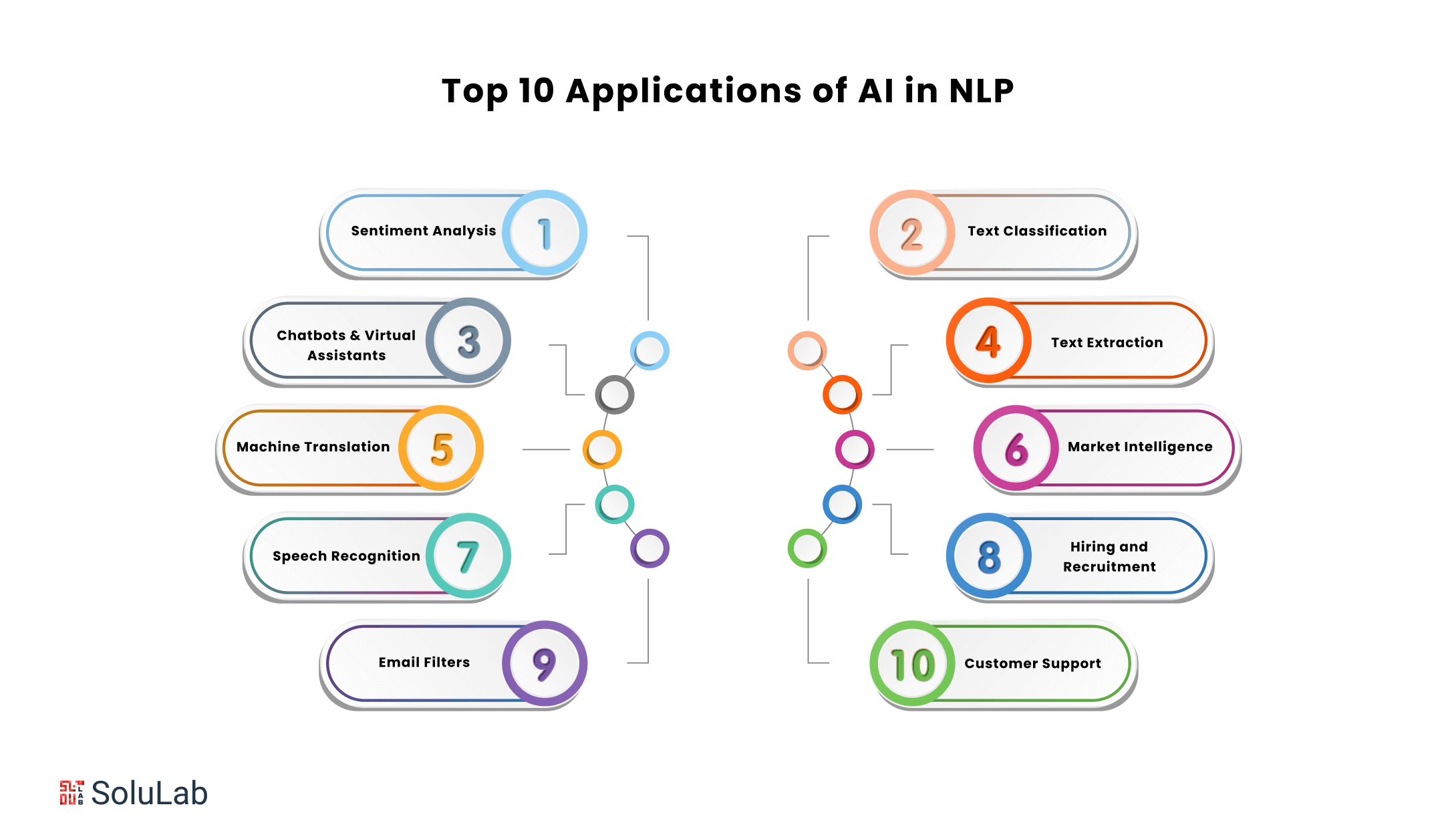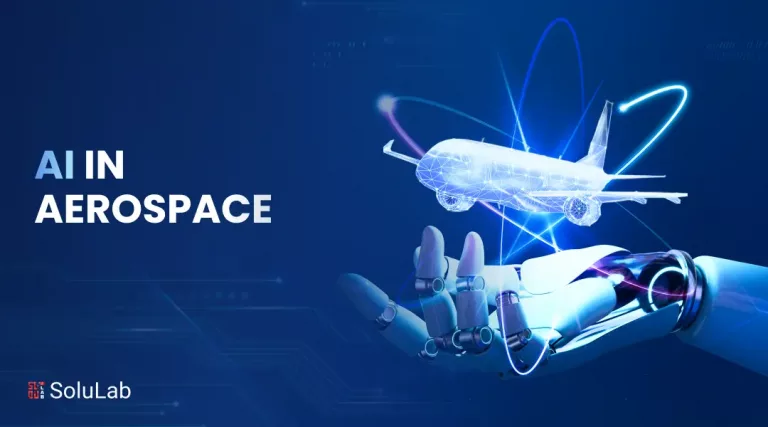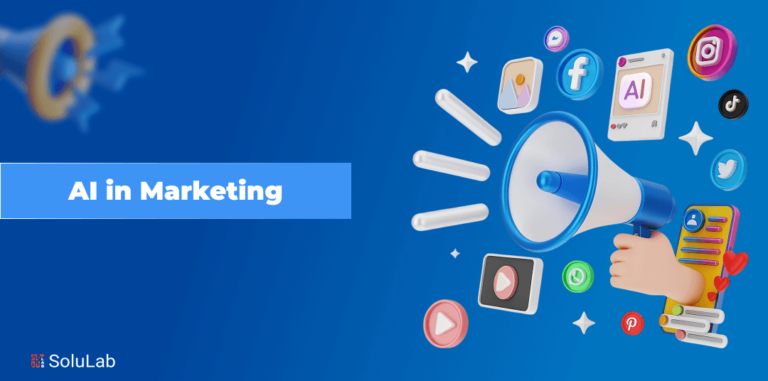
As everyone knows, language is very important in our culture. It serves as a channel for people to express their sentiments and trade ideas with one another. The medium has grown throughout time to include books, phone calls, songs, movies, emails, messages, and virtual assistants like Siri or Alexa. It’s a little difficult to picture our world without words.
Because of this, a subfield of artificial intelligence and machine learning called natural language processing, or NLP has emerged as one of data science’s most popular subjects.
Just imagine how much information we may get from the speech and text data we come across daily. To understand the potential of natural language processing and how it affects our lives, we must first look at natural language processing applications. As a result, in this blog post, we will go over the Top 10 Applications of Natural Language Processing.
What is Natural Language Processing?
Natural language processing (NLP) is how machines understand and translate human language.
Businesses rely on natural language processing to make sense of enormous volumes of unstructured text, such as email, social media interactions, online chats, survey replies, voice calls, and many other types of data.
Let’s go over it again. NLP refers to the machine’s capacity to analyze what is said, organize the information received, identify the appropriate answer, and react in a language that we understand. So, how does NLP operate, and what is it used for?
Why is NLP Essential?
Our language has so many variants and subtleties that it can be difficult for a person or organization to assess. Every written or vocal utterance has information that may be understood and used to extract value. However, analyzing a few thousand or million “conversations” might be extremely time-consuming. So, why are natural language processing applications essential?
- To evaluate massive amounts of text or audio data.
- Standardize a very unstructured data flow.
Today’s machines can examine a large amount of data reliably and without weariness. Finally, it comes down to teaching a computer to converse with humans and perform a variety of language-related activities.
How Does NLP Work?
To create powerful NLP models, you must first collect high-quality data.
Applications of NLP in business occur in a variety of formats and are widely used these days. Examples of NLP applications include spell checkers, internet search, translators, voice assistants, spam filters, and autocorrect.
By incorporating the example of NLP in daily life applications into the workplace, businesses may leverage its significant time-saving capabilities to return time to their data teams. They may now focus on analyzing data to uncover what’s useful in the midst of the turmoil, gaining vital insights that will help them make the correct business decisions.
Top 10 Application of NLP

Natural language processing is used in many applications from talking on your phone to using Siri or Alexa on your phone. Here are the top 10 applications of AI in natural language processing:
1. Sentiment Analysis
Understanding natural language can be challenging for machines, especially when dealing with human opinions, often expressed through sarcasm and irony. However, sentiment analysis has the capability to discern subtle emotional nuances and opinions, determining their positivity or negativity. Real-time sentiment analysis enables the monitoring of social media mentions, allowing for the proactive management of negative comments before they escalate. It also provides insights into customer reactions to ongoing marketing campaigns or recent product launches, offering an overall understanding of the public sentiment toward your company.
Periodic sentiment analysis is one of the natural language processing applications in artificial intelligence that allows for a deeper comprehension of customer preferences and concerns related to specific aspects of your business. For instance, it can reveal that customers appreciate a new feature but are dissatisfied with customer service. These insights serve as valuable inputs for making informed decisions and identifying areas for improvement in your business.
2. Text Classification
Text classification, a facet of text analysis that encompasses sentiment analysis, entails the automated comprehension, processing, and categorization of unstructured text.
Imagine having to analyze numerous open-ended responses from your recent NPS survey manually – a time-consuming and potentially costly endeavor. However, what if you could train a natural language processing model to swiftly categorize your data within seconds, using predefined categories and applying your own criteria?
For instance, you could employ a topic classifier tailored for NPS survey responses. This classifier would automatically tag your data based on topics such as Customer Support, Features, Ease of Use, and Pricing. This streamlined approach enhances efficiency and facilitates the extraction of valuable insights from your data.
3. Chatbots & Virtual Assistants
Chatbots and virtual assistants are some of the applications of NLP in real life that serve the purpose of automated question answering, designed to comprehend natural language and provide relevant responses through natural language generation.
While traditional question-answering systems adhere to predefined rules, AI-powered chatbots and virtual assistants possess the ability to learn from each interaction, adapting their responses accordingly. Notably, these intelligent systems continuously improve over time through learning from their interactions.
Increasingly deployed at the forefront of customer support, these machines can efficiently handle up to 80% of routine queries, directing more complex issues to human agents. Operating around the clock, chatbots and virtual assistants contribute to faster response times and alleviate human agents from dealing with repetitive and time-consuming inquiries.
4. Text Extraction
Text extraction, also referred to as information extraction, involves the automatic identification of specific details within a text, encompassing names, companies, locations, and more, commonly known as named entity recognition. Additionally, it includes extracting keywords and predefined features like product serial numbers and models.
One practical application of text extraction is in managing incoming support tickets, where specific data such as company names, order numbers, and email addresses can be identified without the need to manually open and read each ticket. Another use case for text extraction is in data entry. For example, individuals and organizations can use NLP-based data extraction tools such as Imagetotext.io to quickly extract data from images, documents, invoices, bank statements, etc. Extracted information can be seamlessly integrated into a database through automated triggers, streamlining the process.
The application of NLP in machine learning text extraction becomes evident. Combining keyword extraction with sentiment analysis offers an enhanced understanding of customer sentiments. This synergy allows you to identify the most frequently used words by customers to express negativity toward your product or service, providing valuable insights for machine learning applications.
5. Machine Translation
Machine translation (MT) stands out as one of the earliest applications of natural language processing. Despite the declaration of Facebook’s translations as superhuman, the challenge for machine translation lies in grasping context.
Nevertheless, for those who have been consistent users of Google Translate over the years, the significant progress it has made is evident, thanks to substantial advancements in neural networks and the increased availability of extensive datasets.
The application of natural language processing, especially in the context of automated translation, proves invaluable in business settings. It streamlines communication, enables companies to connect with broader audiences, and swiftly and cost-effectively comprehends foreign documentation.
6. Market Intelligence
Leveraging Natural Language Processing (NLP) can be a game-changer for marketers seeking deeper insights into their customers, ultimately enhancing their ability to craft more impactful strategies.
By delving into unstructured data and analyzing elements such as topics, sentiment, keywords, and intent, marketers can significantly augment their market research efforts. This approach not only illuminates current trends but also unveils potential business opportunities. Moreover, the ability to discern customer pain points and monitor competitor activities through data analysis adds another layer of strategic advantage.
The incorporation of example of NLP in daily life in market intelligence not only refines the understanding of customer preferences but also empowers marketers to stay agile in responding to dynamic market conditions, thus contributing to more informed and effective decision-making processes.
7. Speech Recognition
Harnessing the power of natural language processing, speech recognition technology converts spoken language into a machine-readable format.
Speech recognition systems are integral to virtual assistants like Siri, Alexa, and Google Assistant. Beyond consumer applications, the business landscape is witnessing an increasing adoption of speech recognition, highlighting diverse applications and the broader context of the application of AI in natural language processing. For instance, integrating speech-to-text capabilities into business software enables companies to automate call transcriptions, streamline email communications, and even facilitate language translation.
The synergy between artificial intelligence (AI) and natural language processing in speech recognition applications underscores the evolution of technology, enabling more seamless and efficient communication. This not only enhances the user experience in virtual assistants but also presents businesses with innovative ways to boost productivity and streamline communication workflows in the broader framework of the application of AI in natural language processing.
8. Hiring and Recruitment
The Human Resource department holds a crucial role in every organization, tasked with the pivotal responsibility of selecting the most suitable employees. In today’s highly competitive environment, recruiters often face the daunting task of reviewing numerous resumes, sometimes numbering in the hundreds or thousands, for a single position. This process of filtering resumes and shortlisting candidates can be time-consuming. However, there’s a solution – automation through natural language processing (NLP).
By leveraging NLP, recruiters can streamline the process of identifying the right candidates. It is one of the important applications of NLP in AI. This means they no longer have to manually sift through each resume to filter potential candidates. Techniques like information extraction, coupled with named entity recognition, enable the extraction of essential details such as skills, names, locations, and education from resumes. These extracted features can then be used to represent candidates in a feature space, allowing for classification into categories such as fit or not fit for a specific role. Alternatively, candidates could be recommended for different roles based on the content of their resumes.
This automated approach ensures unbiased resume filtering, facilitating the selection of the most qualified candidates for a vacant position, all without extensive manual effort. Many companies employ Application Tracking Systems to efficiently screen resumes and enhance the overall recruitment process.
9. Email Filters
Among the various types of email filters, the spam filter stands out as a widely recognized example. Spam accounts for approximately 85% of global email traffic, underscoring the vital role that email filters play. How can the applications of natural language processing (NLP) contribute to the effectiveness of these filters? Over the years, you’ve likely observed the evolution of email filters aimed at helping users maintain an organized inbox. A prime illustration is Gmail, which provides distinct categories like primary, promotions, updates, and social for email organization.
At the heart of these email filters lies natural language processing, serving as a fundamental element. As emails land in your inbox, NLP techniques, including keyword extraction and text classification, play a crucial role in automatically scanning and categorizing the emails. This showcases the impactful example of NLP in daily life applications in enhancing the efficiency and organization of email filters.
10. Customer Support
Have you ever found yourself needing to alter your flight plans or cancel a credit card? In such instances, you’ve likely encountered an automated answering system on the other end. While it may seem somewhat routine, these programmed systems serve a crucial purpose for corporations. They efficiently sift through customer information, ensuring a swift connection to the appropriate representative.
Moreover, these automated systems contribute valuable data for future interactions and enhancements. Don’t be astonished if, in the near future, these answering machines start responding with a more human-like voice, offering a personalized touch to address your inquiries. The evolution of customer support mechanisms continues to embrace technological advancements, aiming to provide seamless and enhanced assistance to customers.
Final Words
In conclusion, the applications of Natural Language Processing (NLP) showcased in this blog underscore its transformative role across diverse fields. From deciphering sentiment and classifying text to powering chatbots, and virtual assistants, and even revolutionizing the hiring process, NLP has become an indispensable tool for businesses seeking efficiency, automation, and improved decision-making. Its impact extends to market intelligence, language translation, and customer support, demonstrating the versatility and growing significance of NLP in shaping our technological landscape.
For those eager to harness the potential of NLP and delve into the realm of Artificial Intelligence, SoluLab stands as a leading AI application development company. With a proven track record in delivering innovative AI solutions, SoluLab offers expertise in developing and implementing cutting-edge NLP applications. Whether it’s enhancing customer interactions, automating processes, or extracting valuable insights from data, SoluLab’s AI development services provide tailored solutions to meet the evolving needs of businesses across various industries. As pioneers in the field, SoluLab’s AI developers bring a wealth of experience and proficiency to propel organizations into a future where the seamless integration of NLP transforms the way we interact with and derive value from technology.
FAQs
1. What is Natural Language Processing (NLP), and why is it important?
NLP is a branch of artificial intelligence that focuses on the interaction between computers and human languages. It is crucial as it enables machines to understand, interpret, and generate human-like language, opening avenues for automation, efficiency, and improved decision-making.
2. How does NLP contribute to market intelligence?
NLP plays a vital role in market intelligence by analyzing topics, sentiment, and keywords in unstructured data. This allows businesses to gain insights into trends, customer sentiments, and potential business opportunities, facilitating informed decision-making.
3. Can NLP be applied to hiring processes?
Yes, NLP can be applied to hiring processes by automating resume screening. Techniques like information extraction and named entity recognition help in extracting relevant details such as skills and education from resumes, streamlining the selection of the right candidates.
4. What is the significance of NLP in customer support?
In customer support, NLP automates responses to queries, providing efficient and personalized assistance. It also contributes valuable data for future improvements, enhancing the overall customer experience.
5. How can SoluLab assist in AI development services related to NLP?
SoluLab, a renowned AI development company, offers expertise in developing and implementing NLP applications. Our AI development services cater to businesses looking to leverage the power of NLP for improved communication, automation, and data extraction, ensuring tailored solutions to meet diverse industry needs.






